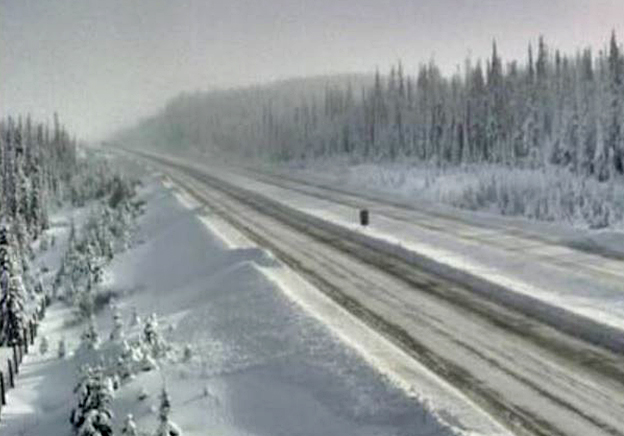Plan on driving long distances, over mountains, this weekend? Be prepared.

Environment Canada says highway passes in B.C. are going to experience extreme cold for the next 72 hours, and that motorists should expect wind chill values in the -20 to -50 range.
With weather warnings stretching across the province due to bone-chilling temperatures, police say stock up before taking off and driving somewhere.
“Driving in the mountains should mean having an emergency kit with you in the unlikely or terrible event if your vehicle gets stranded,” said Insp. Chad Badry with B.C. Highway Patrol.

The weather warnings include the Sea to Sky Highway, the Coquihalla Highway, the Okanagan Connector and part of the Trans-Canada Highway, from Salmon Arm to Golden.
“An extremely cold arctic ridge lies over B.C., said Environment Canada. “Temperatures in the -30s combined with moderate winds will create dangerous windchill values of minus 35 or lower. “These wind chill values are expected to moderate on Sunday as the temperatures moderate.”
For the Rogers Pass area of the Trans-Canada, the wind-chill values will be between -35 and -45.
For the Coquihalla and Okanagan Connector, temperatures will range between -25 C and -35 C. However, combined with winds of 20-40 km/h, the wind chill will be between -40 and -50.
For the Sea to Sky Highway, arctic air, combined with strong outflow winds with gusts near 60 km/h, the wind chill will be between -20 and -30.

Badry said when it comes to travelling across alpine terrain, it’s better to be safe and carry extra emergency material than not and potentially be sorry.
“You have to be able to survive for 24 hours,” said Badry. “That means you need a blanket, something to keep warm, maybe some food, ice scrapers, proper footwear, warm clothes. That sort of thing. You could be stuck for a little while.”
For the latest road conditions throughout the province, visit DriveBC.




Comments